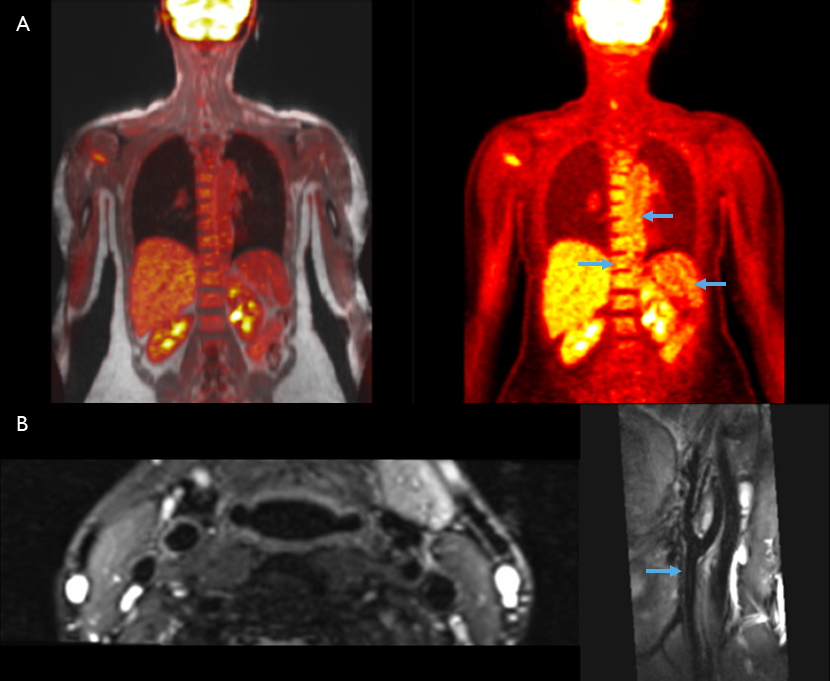Clinical Trials Unit (BMEII-CTU)
The BioMedical Engineering and Imaging Institute Clinical Trials Unit (BMEII-CTU) is a modern hybrid between a contract research organization and an imaging core. We specialize in developing experimental imaging endpoints not previously used in multicenter clinical trials.
BMEII-CTU supports industry and federally sponsored multicenter clinical studies, as well as individual investigators interested in using imaging endpoints for their research. Typical services offered include trial design and consultation, multi-modality imaging protocol development, site training and qualification, image analysis, database management, data quality control and publication support. Qualified BMEII-CTU analysts are experienced in the use of FDA approved, 21CFR Part 11 compliant, image analysis platforms and adhere to ICH GCP regulations. Some examples of our work are:
Cardiovascular Imaging
BMEII has pioneered the non-invasive imaging of vascular disease using PET, CT and MRI to visualize anatomical and functional aspects of atherosclerosis and its sequelae. We image and assess the vasculature and other territories such as the airways, heart, spleen, bone marrow, brain and adipose tissue.

A) 18F-FDG-PET/MR and corresponding PET in the coronal plane showing uptake in the aortic wall, spleen and bone marrow.
B) High resolution, T2-weighted, black blood MR in the axial and parasagittal planes showing carotid artery walls.
Monitoring Disease Progression
Novel imaging endpoints can be used to evaluate the efficacy of a drug, or track disease progression, by imaging patients pre- and post-treatment. Quantitative and qualitative assessment of plaque components, and volumetric analysis of clot burden in the lungs and peripheral vasculature are some examples of imaging endpoints measured by BMEII-CTU for clinical trials.
3D volume rendered video of contrast enhanced CT Angiography showing diminishing clot burden after treatment in this patient with pulmonary emboli.
3D volume rendered video of contrast enhanced MR Venography showing diminishing clot burden after treatment in this patient with deep vein thrombosis.
Novel Application of Radiotracers
BMEII-CTU has expertise in the novel application of radiotracers. For example, 18F-NaF-PET is used to detect bone formation and remodeling. Uptake in plaque is believed to be related to vascular calcification.
Pseudoxanthoma elasticum (PXE) is an autosomal recessive disease that results in calcifications in the skin, eyes and cardiovascular system. Using 18F-NaF-PET in PXE patients can show active calcification, as identified in the bilateral femoral arteries in the video.
3D volume rendered video showing CT, 18F-NaF-PET, and fused PET/CT in a PXE patient.
Detection of Latent Disease
We can apply innovative imaging techniques for early detection of latent disease. For example, dual-energy CT (DECT) can distinguish different materials based on their relative absorption of X‐rays at different energy spectra.
DECT has been used to visualize gout in the joints, but our capabilities allow us to identify monosodium urate deposits in the vasculature. Quantifying these deposits could help assess treatment efficacy and correlate with future cardiovascular risk.
3D volume rendered video showing DECT of patient with gout. MSU deposits are depicted in green.
Faculty - Artificial Intelligence (AI) and Translation to Medicine
Faculty - Biomedical Engineering and Regenerative Medicine
The BioMedical Engineering and Imaging Institute (BMEII) at the Icahn School of Medicine at Mount Sinai (ISMMS), in partnership with Rensselaer Polytechnic Institute, is seeking mid to senior-level faculty members to spearhead a novel research initiative in the engineering of reparative and regenerative Medicine.
Faculty - Neuroengineering
Biomedical Software Developer
The BioMedical Engineering and Imaging Institute at the Icahn School of Medicine at Mount Sinai is seeking a Biomedical Software Developer.
News
[VIDEO] Aspen Ideas Festival: Dr. Fuchs and Dr. Fayad on Powering Medicine with Technology and Data Science
Zahi A. Fayad, PhD, Director of Biomedical Engineering and Imaging Institute sits down with Thomas Fuchs, DrSc, Dean of Artificial Intelligence and Human Health to discuss powering medicine with technology and data science. Click the image to watch the video.
[VIDEO] Dr. Zahi Fayad: Powering Medicine with Technology and Data Science
BMEII Director Zahi Fayad discusses the role of data science in medicine at the 2022 Aspen Ideas Festival. Click the image to watch the video.
Latest Publications
Artificial intelligence–enabled rapid diagnosis of patients with COVID-19
Xueyan Mei, Hao-Chih Lee, […] Yang Yang
Nat Med (2020).
Probing myeloid cell dynamics in ischaemic heart disease by nanotracer hot-spot imaging
Max L. Senders, Anu E. Meerwaldt, ... Willem J. M. Mulder
Nat. Nanotechnol. 15, 398–405 (2020).